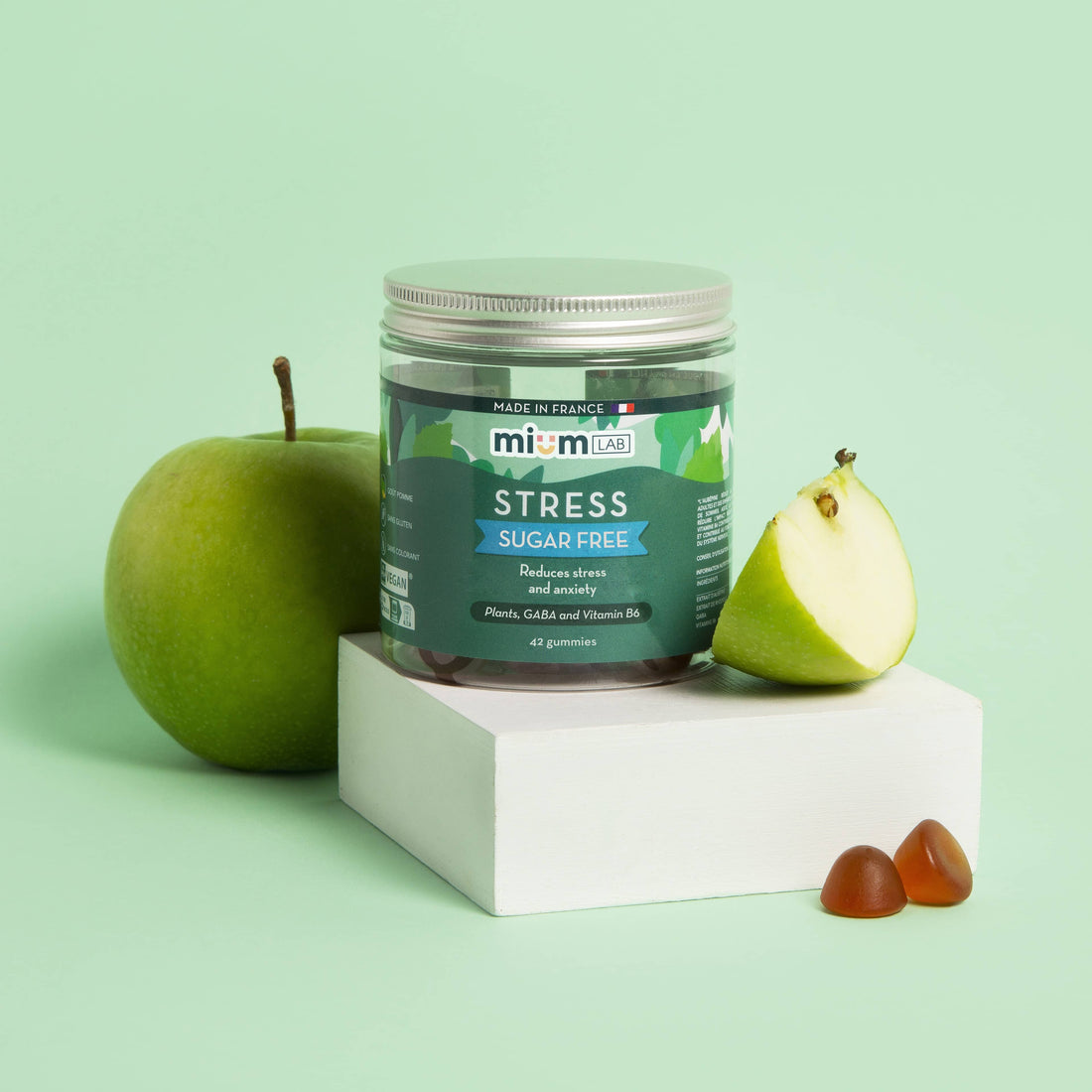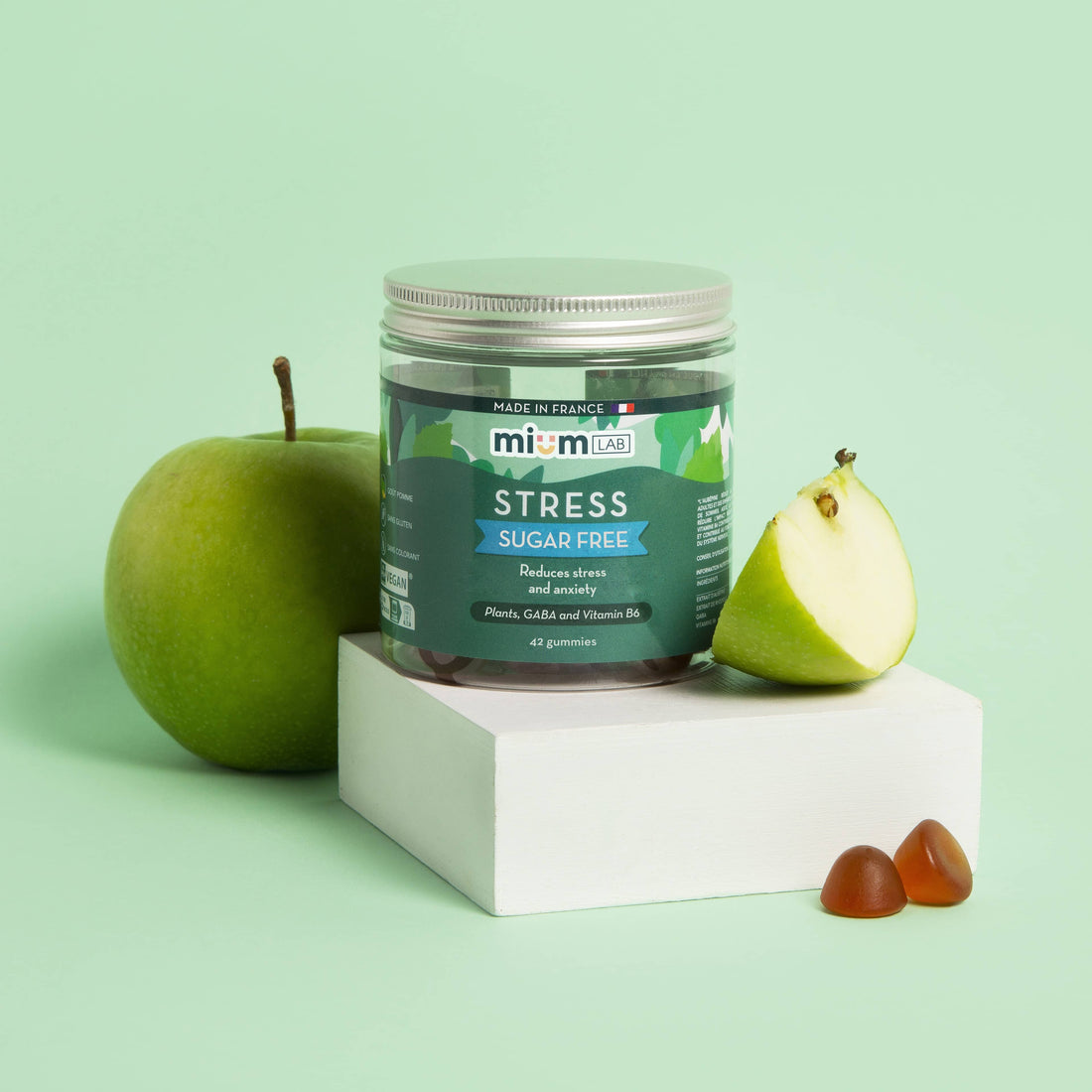Hawthorn: a plant with anti-stress and soothing properties
Hawthorn (Crataegus monogyna) is a thorny shrub known for its medicinal properties and bushy appearance, reaching up to 4 meters in height. Valued in phytotherapy for centuries, this plant is rich in flavonoids and sterols, active compounds that give it antispasmodic and tranquilising virtues.
Benefits of hawthorn
Hawthorn is recognised for its calming and soothing effects, particularly in managing stress and anxiety:
- Reduction of stress and anxiety: Thanks to its tranquilising properties, hawthorn helps calm the mind and reduce stress levels. The flavonoids, especially vitexin, and sterols in hawthorn play a key role in these soothing effects. These compounds act on the central nervous system receptors, promoting natural relaxation and reducing anxiety symptoms.
- Improvement of sleep: As a natural anti-stress remedy, hawthorn helps improve sleep quality by reducing anxiety and nervousness. The flavonoids and procyanidins in hawthorn have mild sedative properties that help induce sleep and prolong deep sleep phases, essential for optimal recovery.
- Antispasmodic effect: The active components of hawthorn, such as flavonoids and triterpenes, help relieve muscle spasms and nervous tension. These substances promote the relaxation of smooth muscles, which can be beneficial in case of muscle cramps or stress-related pains.
Studies and research on the benefits of hawthorn
Recent studies have highlighted the therapeutic potential of hawthorn, particularly in combating stress and anxiety. Here are some of the most relevant research findings:
Anxiety study:
A study published in the Journal of Herbal Medicine evaluated the effectiveness of hawthorn in patients suffering from mild to moderate anxiety disorders. The results showed that regular consumption of hawthorn extract significantly reduced anxiety symptoms, such as nervousness and heart palpitations, compared to the placebo group.
Stress study:
Another study, published in the Phytomedicine Journal, explored the effects of hawthorn on oxidative stress and inflammatory markers in subjects under chronic stress. Researchers found that hawthorn had a significant antioxidant effect, reducing oxidative stress levels and improving inflammatory responses, which contributes to better stress management.
Sleep study:
Research conducted at the University of Melbourne studied the effects of hawthorn on sleep quality. The study revealed that participants who took hawthorn extract before bed experienced a notable improvement in sleep duration and quality, with fewer nighttime awakenings and an increased feeling of rest upon waking.
How to consume hawthorn and where to find it?
Hawthorn can be consumed in various forms to enjoy its benefits:
- Infusion: Infuse a teaspoon of dried flowers in a cup of hot water for 10 minutes. Drink two to three times a day.
- Liquid extract: Take 20 to 30 drops of liquid extract diluted in a little water, two to three times a day.
- Dietary supplements: Available as delicious anti-stress gummies with apple flavour at Mium Lab!
Precautions and side effects of the active compounds in cawthorn
Hawthorn is generally well-tolerated and does not pose major risks of side effects or addiction.
Origin and history of hawthorn
Hawthorn has been celebrated since antiquity for its symbolic and medicinal virtues. A symbol of rebirth and purity, its flowers were offered to newlyweds to bring them happiness and fidelity. In traditional Chinese medicine, hawthorn has been used for centuries to treat various cardiovascular disorders. It is only recently that its benefits have been recognised by Western pharmacopoeia, sparking growing interest in this plant with multiple virtues.





